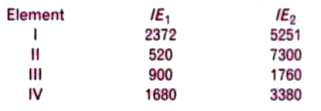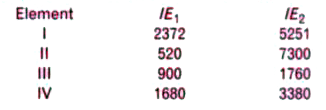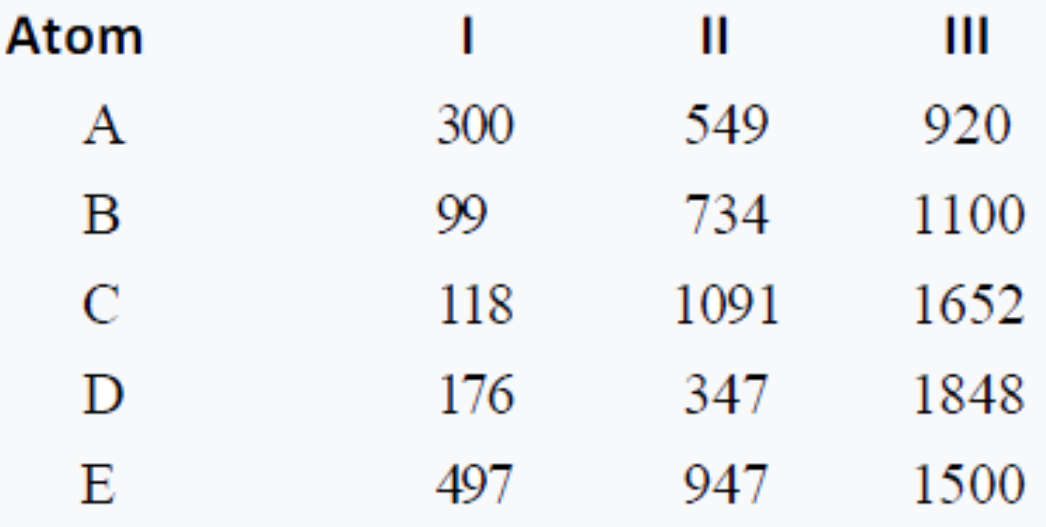The first(IE_(1)) and second (IE_(2))Ionization energies (KJ/mol) of a few elements designated by roman numerals are given below.Which of these would be an alkali metal?
Metal A which is capable of forming a binary halide of formula AX2 must be a member of alkaline earth metals (group 2). The IE2 values of group 2 elements are normally lower than those of group I elements while their IE1 values are higher. Thus, the element III forms a binary halide with formula AX2.
Topper's Solved these Questions
- PERIODIC PROPERTIES OF ELEMENTS BOOK - VMC MODULES ENGLISHCHAPTER - PERIODIC PROPERTIES OF ELEMENTS EXERCISE - Solved Examples
80 Videos
- PERIODIC PROPERTIES OF ELEMENTS BOOK - VMC MODULES ENGLISHCHAPTER - PERIODIC PROPERTIES OF ELEMENTS EXERCISE - Practice Exercise
29 Videos
- QUIZBOOK - VMC MODULES ENGLISHCHAPTER - QUIZEXERCISE - Chemistry
15 Videos
Similar Questions
The first (IE1) and second (E2) ionization energies (kJ/mol) of few elements designated by Roman numerals are given below. Which of these would be an alkali metal?
View SolutionThe first (IE1) and the second (IE2) ionisation energies (kJ mol−1) of a few elements are given below :

Which of the above elements is likely to be
a noble gas?
View Solution
Knowledge Check
The first (IE1) and second (IE2) ionisation energies (kJmol−1) of a new elements designated by roman numerals are shown below:
IE1IE2I23705250II5207300III9001800IV17003400
Which of the above elements is likely to be :
a. A reactive metal
b. A reactive non-metal
c. a noble gas
d. A metal that forms a stable binary halide of the formula AX2 (X= the halogen).AI,2372,5251BII,520,7300CIII,900,1760DIV,1680,3380
The first (IE1) and the second (IE2) ionisation energies (kJ mol−1) of a few elements are given below :

Which of the above elements is likely to be
a reactive non-metal?
View SolutionThe first (IE1) and the second (IE2) ionisation energies (kJ mol−1) of a few elements are given below :

Which of the above elements is likely to be
a reactive metal?
View SolutionIonization energies of five elements in kcal/mol are given below:

Q. Which element form stable unipositve ion?
View SolutionIonization energies of five elements in kcal/mol are given below:

Q. Which element form stable unipositve ion?
View SolutionIonization energies of five elements in kcal/mol are given below:

Q. Which element is a noble gas?
View SolutionIonization energies of five elements in kcal/mol are given below:

Q. Which element is a noble gas?
View SolutionIonization energies of five elements in kcal/mol are given below:
 .
.
Which element is a noble gas ?
View Solution
